News & Media
A black-tie gala dinner to engage in sustainable higher education
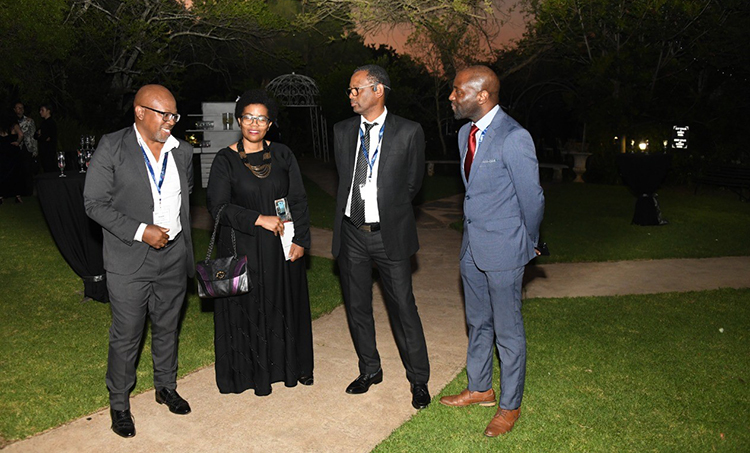
From left to right: Dr Mxolisi Masango, SAAIR Former President and the Director of Institutional Research and Analytics at the University of Pretoria; Prof Puleng LenkaBula, Unisa Principal and Vice-Chancellor of Unisa; Prof Khehla Ndlovu, Unisa Vice-Principal of Strategy, Risk and Advisory Services; Bryton Masiye, Director: Unisa Strategy and Planning, Department of Institutional Intelligence.
A gala dinner organised by Unisa, and the South African Association for Institutional Researchers (SAAIR) took place on the 16th of November 2022 at the Casablanca Manor in Pretoria. The dinner hosted the delegates who attended the 29th SAAIR conference from various universities in Africa, the Council on Higher Education (CHE) representatives, and Unisans.
SAAIR is a non-profit organisation which aims to promote institutional research, training and development, and the exchange of information from the effective institutional research units in each institution of higher education.
The gala dinner announced two award scholarship winners who demonstrated the expansion and application of appropriate methodologies and techniques in their disciplines and fields of study. The awards are one way SAAIR uses to promote teaching and learning.
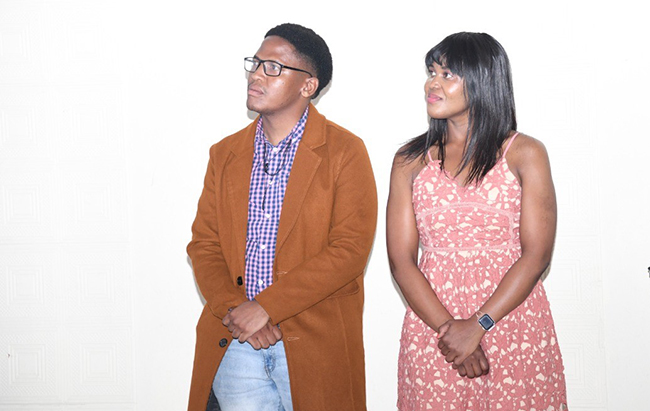
SAAIR scholarship award-winners: Zamangwane Zikhali, Tshwane University of Technology (TUT) and Bradley Khumalo, University of the Western Cape (UWC).
Presented by SAAIR, the two scholars announced at the gathering are Zamangwane Zikhali from the Tshwane University of Technology (TUT) and Bradley Khumalo from the University of the Western Cape (UWC).
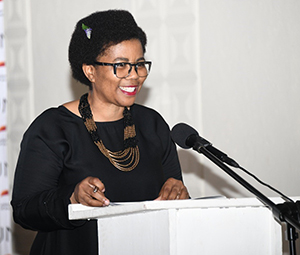
Prof Puleng LenkaBula, the Principal and Vice-Chancellor of Unisa
Speaking at the event, Professor Puleng LenkaBula, the Principal and Vice-Chancellor (VC) of Unisa, stated that institutional research is a cornerstone of higher education institutions (HEIs). "Unisa is honoured to host this noble association," said LenkaBula referring to SAAIR. She further applauded the conference by noting that connectedness in the country and the global arena in the processes and science systems is essential. Moreover, LenkaBula said that COVID-19 has tested the institutional continuity plans and validated the university's ability to respond to uncertainties and disruptions.
Giving a message of hope to the audience, LenkaBula underscored the positives brought by the pandemic in higher learning institutions. She said that many institutions leveraged the positives to assist students in completing their academic year. She asserted that the most consistent improvement during the pandemic was in digital transformation solutions and initiatives designed to continue the academic project, including teaching, learning and research.
She further shared how Unisa found ways to improve various online systems during the pandemic. As a distance education pioneer, LenkaBula said, many universities are learning from Unisa's distance model. "During the pandemic," she explained, "Unisa took advantage of its data and analytics to assist in supporting decisions around creative and innovative solutions." She also shared with the audience the university's efforts to implement a data hub for the university's enterprise. Adding that, it would be a feat that leverages the CODEL blueprint for institutional data and information services capabilities.
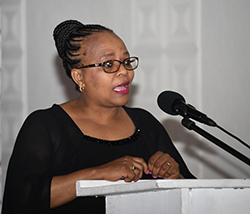
Dr Matseliso Molapo, Executive Director, Department of Institutional Intelligence, Unisa
"Notwithstanding the lessons learned from the pandemic," added LenkaBula. "The lessons institutional researchers had drawn from this have provided some positive gains." Closing her address, she said among other critical educational activities in teaching, learning, research, and institutional operations, it is crucial to use the fourth industrial revolution (4IR) to serve the students better. "We need holistic African students, researchers and inventors to make a difference in the world," she said.
The Vice-Principal of Strategy, Risk and Advisory Services, Professor Khehla Ndlovu, also acknowledged that hosting such an impactful event has been a great pleasure. He expressed the importance of pausing and celebrating research milestones. He firmly believes that engaging in institutional research, institutional planning, quality assurance, and business intelligence is crucial to enhance the university's services.
As the largest university in the continent, Ndlovu explained that Unisa relies heavily on the work done by institutional researchers, analysts, quality assurance practitioners and planners to ensure that operations and activities of student support are running smoothly.
Ndlovu leads a portfolio that ensures that Unisa's academic project is well-planned and sustained through best practices and better decision-making. In his address, he emphasised the importance of centralised intelligence and analytics, especially for online education, noting that it is crucial for the university's growth. Additionally, he pointed out the recent Unitelligence project—a business intelligence and analytics platform established to ensure a single point of entry for all analytics and reporting in the institution.
Held in a beautiful venue with delegates honouring a black-tie theme, the gala dinner highlighted the importance of institutional researchers within the universities and their role in ensuring that education is sustainable despite disruptions.
*By Lesego Chiloane-Ravhudzulo, Journalist, Department of Institutional Advancement
Publish date: 2022-11-21 00:00:00.0

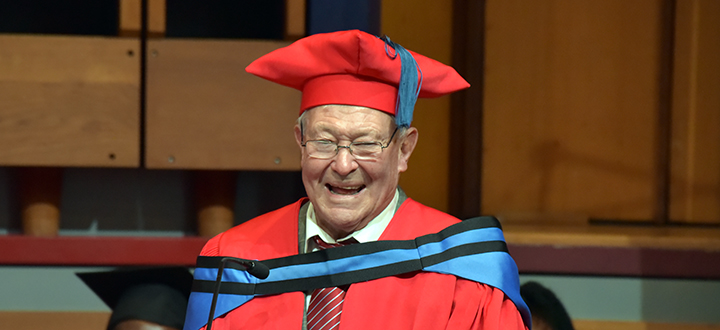 Community champion and agricultural entrepreneur extraordinaire honoured by Unisa
Community champion and agricultural entrepreneur extraordinaire honoured by Unisa
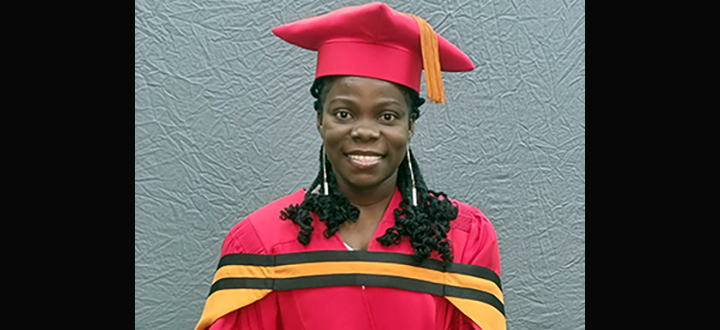 Ghanaian-born Swede earns PhD in Information Sciences from Unisa
Ghanaian-born Swede earns PhD in Information Sciences from Unisa
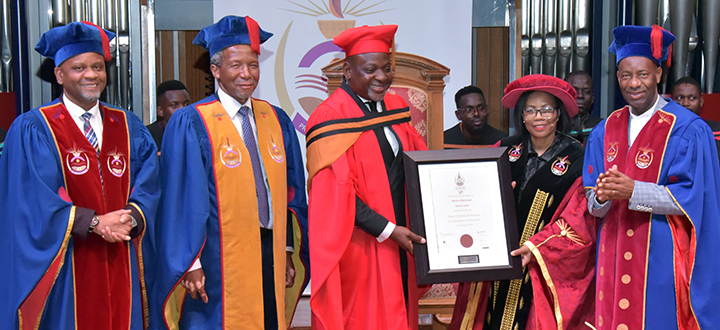 Unisa awards honorary doctorate to exemplary philanthropist and entrepreneur Collen Tshifhiwa Mashawana
Unisa awards honorary doctorate to exemplary philanthropist and entrepreneur Collen Tshifhiwa Mashawana
 Inhlanyelo Hub explores financing and sustainability at the International Conference on Business Incubation
Inhlanyelo Hub explores financing and sustainability at the International Conference on Business Incubation
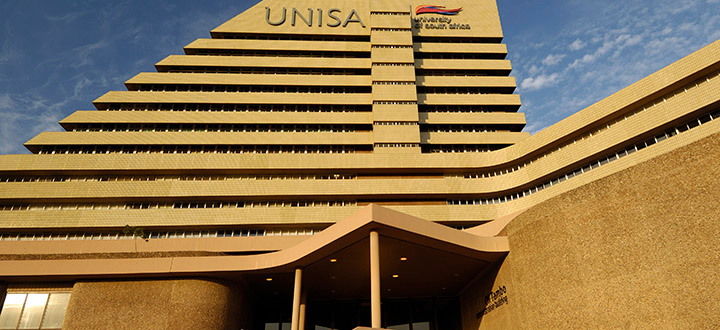 Unisa remains anchored among the waves
Unisa remains anchored among the waves